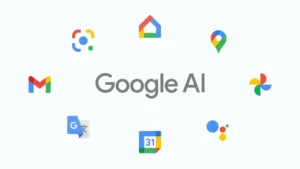Google has set the tech world abuzz with a major restructuring initiative. In a move that underscores their unwavering commitment to Artificial Intelligence (AI), the company is merging its Android, Chrome, and Pixel teams into a unified entity. This strategic reorganization signifies Google’s focus on creating a more cohesive and intelligent ecosystem across its devices and software.

A Symphony of Devices and Software:
Google aims to foster a more collaborative environment by merging these previously independent teams. This will enable closer integration between the operating system (Android), the web browser (Chrome), and Google’s hardware products (Pixel phones). Imagine a seamless flow of information and functionality across your devices – a phone call initiated on your Pixel seamlessly transitioning to your laptop’s Chrome browser or an article opened on Chrome automatically appearing in your phone’s reading list. This interconnected ecosystem is a glimpse into the future Google envisions.
AI: The Unifying Force:
The restructuring goes beyond a simple team merge. Google is also streamlining its AI development teams, recognizing AI as the cornerstone of their future. A centralized AI unit will likely work on developing core AI technologies that can be seamlessly integrated across different products and services. This could lead to more intelligent features like enhanced voice assistants, personalized user experiences, and a stronger focus on security and privacy powered by AI.
The Road to an “AI Future”
This reorganization isn’t just about efficiency; it’s about Google’s vision for an “AI Future.” By unifying its software and hardware teams and prioritizing AI development, Google is laying the groundwork for a future where intelligent devices seamlessly connect and anticipate our needs.
While the long-term implications of this restructuring remain to be seen, one thing is clear: Google is placing a major bet on AI. This move positions them at the forefront of the AI revolution, and it will be interesting to see how this focus shapes the way we interact with technology in the years to come.
However, some challenges lie ahead.
Ensuring user privacy in an AI-driven ecosystem and navigating potential anti-trust concerns will be crucial for Google’s success. Despite these hurdles, Google’s restructuring is a bold step towards an intelligent future, and it will undoubtedly be a story to watch unfold.





